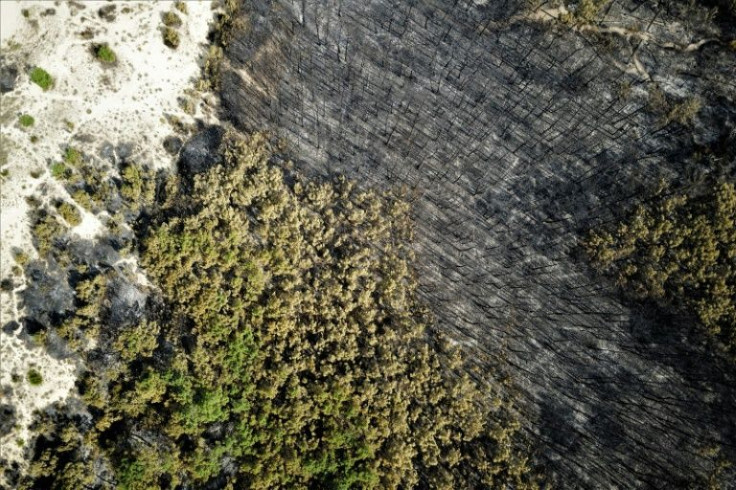Europe Fires Already Worse Than In All 2021: Monitor
The wildfires that ripped through swathes of Europe in recent weeks have already burned a larger area of land than was lost to blazes in all of 2021, the EU's satellite monitoring service said Thursday.
Across the European Union, fires this year, as of 16 July, have torched 517,881 hectares -- a little more than 5,000 km2 or the equivalent surface area of Trinidad and Tobago, the EFFIS monitor said.
In all of 2021, 470,359 hectares (4,700 km2) of forest were lost to fires, mainly in Italy and Greece.
2022 has seen blazes rage across France, Spain, Portugal and Greece amid a record-shattering heatwave that also saw blazes in Britain where temperatures topped 40 C for the first time on record.
EFFIS said that Europe could end 2022 with more land burned by area than 2017, currently the worst recorded year for wildfires with nearly 1,000,000 hectares (10,000 km2) lost.
"The situation is much worse than expected, even if we were expecting temperature anomalies with our long-term forecasts," Jesus San Miguel, EFFIS coordinator, told AFP.

"We expect worse to come -- we aren't even halfway into the fire season."
Close to 40,000 hectares of forest in France have been lost to fire so far this year, more than the 30,000 that burned there in 2021.
Spain -- where more than 500 people died during a 10-day heatwave this month -- has seen 190,000 hectares go up in smoke this year, compared with 85,000 last year.
And with higher temperatures brought by global heating, places less accustomed to wildfires have also been hit this year, notably Britain.
A little over 20,000 hectares have burned in 2022, compared with just 6,000 in all of 2021.
"In the end, fires are caused by people, but the heatwave is critical and (these fires) are clearly linked to climate change," said San Miguel.
© Copyright AFP 2024. All rights reserved.





















